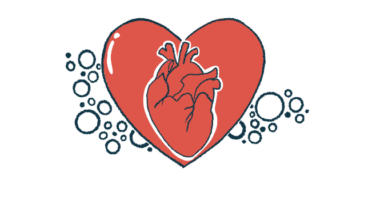Study Examines Role of Hormone in Subclinical Hypercortisolism
Aldosterone likely affects blood pressure, study suggests

The hormone aldosterone may contribute to high blood pressure in people with subclinical hypercortisolism — those who have high levels of cortisol due to tumors in the adrenal glands, but do not have overt symptoms of Cushing’s syndrome.
Aldosterone, excessively produced and released by the adrenal glands in these patients, correlated with higher blood pressure before adrenal surgery and with improvements in blood pressure after surgery.
Researchers suggested these findings underscore the importance of considering aldosterone in subclinical hypercortisolism caused by adrenal tumors complicated by high blood pressure.
The study, “Association Between Aldosterone and Hypertension Among Patients With Overt and Subclinical Hypercortisolism,” was published in the Journal of the Endocrine Society.
Cushing’s syndrome comprises a group of disorders characterized by the overproduction of the stress hormone cortisol by the adrenal glands. Most cases are associated with Cushing’s disease, whereby non-cancerous tumors in the brain’s pituitary gland overstimulate the adrenal glands to produce excessive amounts of cortisol. About 15% of Cushing’s cases, however, are caused by tumors found in the adrenal glands themselves.
High blood pressure, referred to clinically as hypertension, is a common feature of Cushing’s syndrome. Hypertension also is seen in people with subclinical hypercortisolism, whose cortisol levels are above the normal range, but not high enough to trigger overt symptoms.
Aldosterone is a hormone that regulates blood pressure. Adrenal tumors can trigger excess aldosterone production leading to hypertension. In some cases, excess aldosterone is associated with cortisol-producing tumors, while removal of aldosterone-producing tumors can lower cortisol.
However, whether aldosterone plays a role in hypertension among Cushing’s syndrome patients with adrenal tumors, including those with subclinical hypercortisolism, is unclear.
To address this knowledge gap, researchers in Japan examined the association between aldosterone and hypertension based on data from the medical records of 89 patients with elevated blood cortisol due to adrenal tumors, with or without overt signs of Cushing’s syndrome.
May be the first such study
“To the best of our knowledge, this is one of the first studies to assess the potential role of aldosterone in hypertension among patients with overt and subclinical hypercortisolism,” the team wrote.
Among the participants, 68 had subclinical hypercortisolism, while 21 had overt clinical signs of Cushing’s, including a rounded face, obesity, neck fat pad, thin skin, purple stretch marks, bruising, and weakness in the limb muscles closest to the body.
All 21 individuals with symptoms had high levels of cortisol in their bloodstream, and 19 had hypertension. All underwent adrenalectomy — surgical removal of one or both adrenal glands — resulting in lower blood pressure in 16 patients.
Before and after surgery
Likewise, of the 68 individuals with subclinical hypercortisolism, 63 had hypertension, and 33 underwent adrenalectomy. Compared with those who did not have surgery, all patients who underwent adrenalectomy had lower plasma renin activity (PRA) and a higher aldosterone-to-renin ratio (ARR), both signs of excess aldosterone release. After surgery, 23 patients had lower blood pressure.
Subclinical patients, in general, showed higher blood aldosterone levels and ARR values. Excess aldosterone production — primary aldosteronism with ARR values above 20 — occurred in 25 (36%) patients with subclinical hypercortisolism.
Among patients with overt Cushing’s symptoms, statistical calculations found no significant associations between hormone parameters and systolic blood pressure — the maximum pressure the heart exerts while beating.
In contrast, in patients with subclinical hypercortisolism, elevated levels of aldosterone in the bloodstream were significantly associated with higher systolic blood pressure. Further, higher blood aldosterone before surgery was significantly associated with lower blood pressure after surgery.
“[Blood] aldosterone concentrations were associated with systolic blood pressure and improvement rate of hypertension after the adrenalectomy among patients with subclinical hypercortisolism,” the team wrote. “Our findings underscore the importance of considering aldosterone when patients have an adrenal tumor with possible … cortisol secretion complicated with hypertension.”
“Future molecular and epidemiological studies are warranted to identify the potential role of aldosterone in hypertension among patients with subclinical hypercortisolism, clarify how often these patients also have primary aldosteronism, and examine the clinical effectiveness of the intervention targeting aldosterone for such patients,” they wrote.







